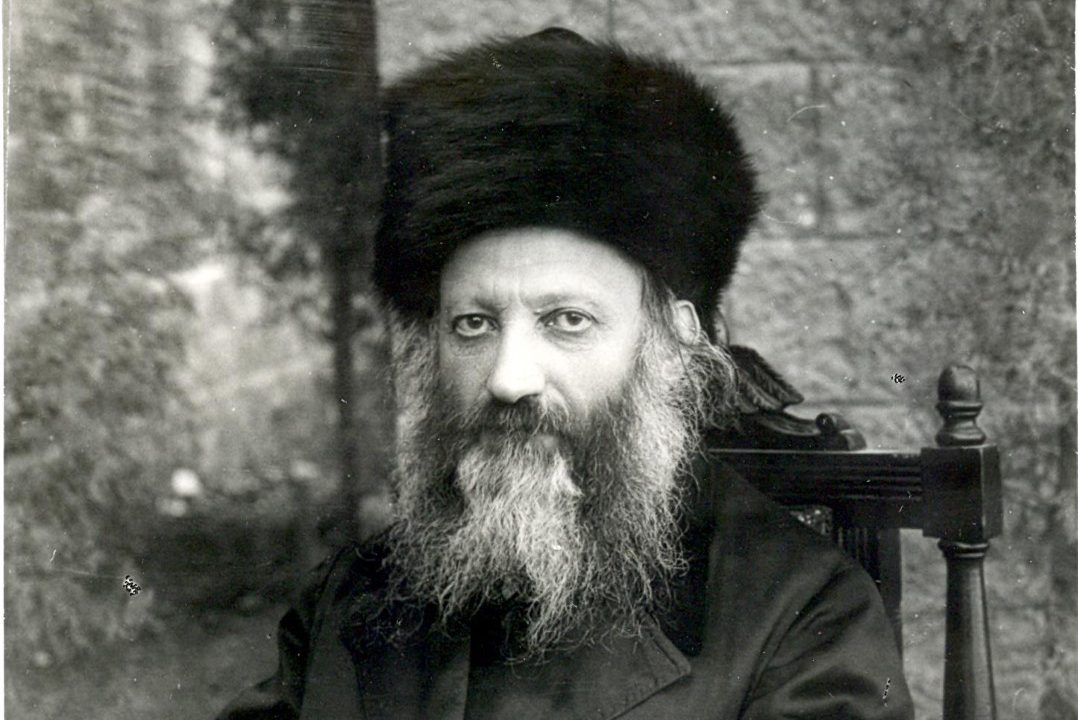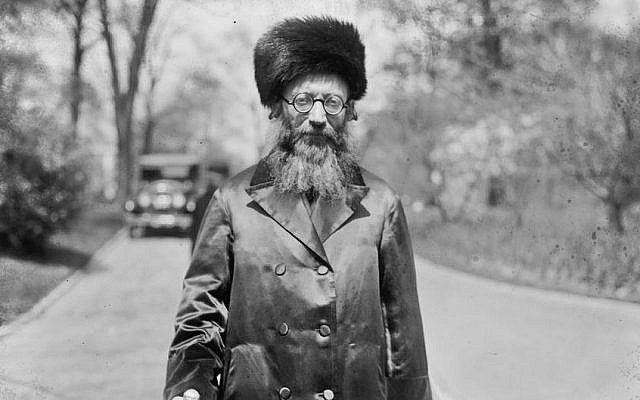
Reflections on Rav Kook’s writings on love as it manifests toward God, our fellow Jews, and humanity as a whole.
Zachary Truboff
f
If one wanted to summarize all of Rav Kook’s thought in a single word, one could do far worse than love. For Rav Kook, love is what binds together creation and connects us to all aspects of existence. It motivates ethical action pushing us to achieve that which we had thought impossible and its appearance in our lives is the closest must of us will ever get to a taste of transcendence. For Rav Kook, love came easy. As a Kohen, a descendant of Aharon, he regularly lived up to the example of his forbearer of ‘loving peace and pursuing peace, loving mankind and drawing them close to the Torah.’ For most of us, though, love is not so simple. Either, we fail to believe that it is possible or we fear that its risks are too great to bear. In this sense, we are truly blessed to have the example of Rav Kook to learn from. His extensive writings on the redemptive power of love can help us realize that it is no fantasy, but rather something that can be experienced nearly every day of our lives.
Much of Rav Kook’s thinking on the topic is fueled by his kabbalistic worldview, but one does not have to be a kabbalist in order to learn from him. The following three reflections are an attempt to translate the teachings of Rav Kook into a language accessible to all, even those who remain skeptical of Rav Kook’s mystical pretensions, for as Rav Shagar noted, ‘The world of Kabbalah and its language can be used as a powerful hermeneutic tool to illuminate many contemporary cultural phenomena’.1
According to Rav Kook, love reverberates throughout creation. First, God loves us and we love God, whether we realize it or not. Second, we love the Jewish people, despite the obstacles inherent to such an endeavor, for who always gets along with their family? Third, we strive to love humanity as a whole, knowing that despite the conflict that perpetually erupts throughout the world, our intrinsic connections to one another cannot be denied.
f
Can You Feel God’s Love?
The flame of the holy fire of the love of God is always burning in the soul. It warms the spirit and bring light to life.
Rav Kook, Midot HaReiyah, Ahava, 4
The longer one works in Jewish communal life, the harder it is not to become cynical when terms like Jewish identity and Jewish continuity being bandied about. They often mean different things to different people in ways that empty them of any real meaning. While Jewish education is often looked at as the solution to Jewish identity and continuity, there are no metrics which can guarantee its impact in advance. Rather, Jewish identity must be viewed as an act of faith. One makes the investment in Jewish education here and now knowing that one may never fully apprehend the results of one’s labors.
Nevertheless, I have come to believe that there is something about Jewish life that calls to people, even those who have drifted very far from it. In parshat Eikev, Moshe conveys to the Jewish people the commandment, v’ahavta et hashem elokecha, you must love the Lord your God. In this history of biblical interpretation and Jewish thought, this demand has been met with no small amount of skepticism. How can love, an intense emotion, be commanded? Why is it so important that we love God? Is not our service enough?
For the rationalists, this dictate is hard to swallow, but for those who are more mystically inclined, it offers a deep truth. The reason we can be commanded to love God is because somewhere deep down inside of us we hear God calling out to us. We hear God yearning for our love. As it says in Shir HaShirim (5:2):
I was asleep, but my heart was wakeful. Hark, my beloved knocks! “Let me in, my own, my darling, my faultless dove! For my head is drenched with dew, my locks with the damp of night.”
There is something about this call that cannot be ignored, as Rav Kook himself writes, ‘It is impossible not to love God.’2 If I hadn’t experienced it in my own life, I would not have believed it possible. The event occurred while I was at the shul late on a Friday afternoon trying to finish up some last minute preparations before Shabbat. As this usually the quietest time of the week, I was surprised to hear someone buzzing at the back door. When I answered the door, I saw an older couple standing there and immediately noticed the cross around the man’s neck. The first thing that came to mind is that they must be looking for the church located behind our synagogue, and I immediately started to point him in that direction. However, he said to me in a thick Russian accent that he didn’t want the church and that in fact, he wanted the synagogue.
The man and his wife came inside, and he told me that his parents had been Jewish, but faced horrible oppression in Russia. His father was sent to prison, and at some point in his life he had embraced Christianity. After all these years, however, he still retained a connection to Judaism, albeit a tenuous one, and wanted to make a yahretzeit donation in memory of his parents and grandparents. He wanted to simply hand me some money and go, but I told him that I wanted him to stay so that we can recite the memorial prayers together. I asked that he cover up his cross, come up to the bima and stand with me as I took out a sefer torah and recited a chapter of psalms and Keil Maleh Rachamaim. As I was chanting the words, I looked over at him and saw tears streaming down the man’s face.
Despite many years of not identifying as Jewish and despite probably having worshipped in church many times, here he was in a synagogue just hours before Shabbat, crying as we said prayers for his bubbe and his zeyde. One cannot help but be moved by such a moment. I have no doubt the emotions embedded in those tears cannot easily be put into words, but I have to believe that he was only able to find his way into a synagogue on that Friday afternoon because he heard God’s call of love and felt in that moment that it simply could not be refused.
d
The Challenge of Loving the Jewish People
The great love with which we love our nation must not blind our eyes from criticizing its faults. But we find its essence even after the most unbridled criticism to be cleansed of its blemishes. ‘Every part of you is beautiful, my darling, there is no blemish in you’ (Song of Songs 4:7).
Rav Kook, Orot Yisrael 4:3
Long before Rav Kook, the Greek philosopher Plato noted that it is too often the case that ‘love is blind.’ When we love another, we idealize them and see them as the fulfillment of all our hopes and dreams. However, if love blinds us, we cannot see the other for who they truly are. We love an imagined version of them, not the flesh and blood human being. When their faults are pointed out to us by others, we vehemently defend our beloved believing the harsh criticism to be nothing more than lies.
For Rav Kook, ahavat yisrael, our love for the Jewish people can do the same. Instead of recognizing that the Jewish people are only human, and therefore will err and sin like all other nations, ahavat yisrael causes some to believe that the Jewish people are never wrong. When Israel’s moral failings come to light they must be denied, explained away, or blamed on anti-semitism. All of us who consider ourselves Zionists fall into this trap at times, because as Rav Kook understood, to be a Zionist is to first and foremost be a lover of the Jewish people.
However, Rav Kook’s words should cause us to question whether blind love is ever justifiable. To truly love another is to love them for who they are and not who we want them to be.
Love, first and foremost, means being responsible for those we love. It means caring about their wellbeing even at moments when they see nothing wrong. Though Rav Kook is known for his great love of the Jewish people, and his ability to see the goodness within them when others did not, he still did not hesitate from offering criticism when he felt that it was necessary. He writes:
I know it is very difficult to say words of rebuke in these times… a person cannot say to his fellow that my actions are better than yours. Nevertheless, I am not able to hold back… rebuke is of great worth and specifically when it is rebuke that comes from love… I knew with certainty that the great and mighty love that I have for the entirety of kenneset yisrael and each person within it, big or small, righteous or sinner…. And I know in my soul that this will grant me the spirit to say my words of rebuke.3
Rav Kook understood that his love for the Jewish people gave him the strength to speak, and perhaps even more importantly, created the possibility that his words would be heard. No one wants to hear criticism, and the harsher it is, the more it cuts to the core of who we are, the more likely we will be to close our ears to it.
An important historical example, helps demonstrate this point. In the aftermath of Hannah Arendt’s reporting on the trial of Adolph Eichman, Gershom Scholem, who had known her from their early days in Germany, sent her a blistering letter criticizing her harsh judgement of those Jews, who had served on the Nazi’s Jewish Councils. While they had perhaps been misguided in what their hopes to use their position to save Jewish lives, he completely rejected her description of them as collaborators with the Nazis.
There is something in the Jewish language that is completely indefinable, yet fully concrete—what the Jews call ahavat yisrael, or love for the Jewish people. With you, my dear Hannah, as with so many intellectuals coming from the German left, there is no trace of it.
While Arendt may have thought that her detached judgement was philosophically justified, Scholem believed that her lack of empathy for the Jewish experience during the Holocaust was a moral failure on her part. Scholem, himself, was certainly not one to shy away from criticizing the Jewish people or Israel, but like Rav Kook, he understood that a lack of ahavat yisrael cannot only distort one’s judgement but prevent one’s words from being heard.
f
Loving All
I love all. It is impossible for me not to love all people, all nations. In all the depths of my heart, I want the splendor of all, the rectification of all.
Rav Kook, Chadarav 193
One can hardly turn a page in any of Rav Kook’s voluminous writings without being struck by the fact that love is central to his thought. For him, it is what binds together all the disparate elements of creation. Rav Kook, however, does not just declare the importance of love in the abstract, but rather, testifies again and again that he himself has a great love for all humanity. Living in the world that we do, it’s hard to believe that such a love is even possible.
To appreciate this, it is constructive to explore a critique by Sigmund Freud in ‘Civilization and Its Discontents’ about the kind of love so important to Rav Kook. Without even addressing the question of loving all humanity, Freud notes the profound difficulty of just ‘loving our neighbor as ourselves.’ First, he explains that if our love is meant to be precious to us, how is it something we can just give away to a stranger.
My love is something valuable to me which I ought not to throw away without reflection. It imposes duties on me for whose fulfillment I must be ready to make sacrifices… If I love someone, he must deserve it in some way…
For most of us, love is preferential. Those who receive it must be deserving of it and to give it undeservedly would be unjust. One might even think of it as a finite resource, for love is so demanding that we must be careful to select if and when we will allow it. Those we choose to love are often those closest to us, and as Freud notes, those who are most like us.
He [my neighbor] deserves it if he is so like me in important ways that I can love myself in him; and he deserves it if he is so much more perfect than myself that I can love my ideal of my own self in him.
For Freud, love always has a narcissistic element to it. We love others because we see ourselves in them or because they represent the hopes and ideals we have for the world. To love a stranger, or as Rav Kook wrote, ‘all people, all nations’ is simply too hard. Furthermore, Freud explains that while love may sound appealing in theory, the opposite emotion may be the more rational one.
I must honestly confess that he [the stranger] has more claim to my hostility and even my hatred. He seems to have not the slightest trace of love for me and shows me not the slightest consideration.
If love must be earned in some fashion then what has the neighbor or stranger done to deserve it? If anything, the evidence seems to point in the other direction that one should fear them, or at least keep them at a distance.
Given all this, it is not hard to imagine that Freud would look cynically upon Rav Kook’s professed love for all, but in the book he in fact paints a more complicated picture. Frued states that there are rare individuals who experience the world as Rav Kook does. They live life with:
a sensation of ‘eternity’, a feeling as of something limitless, unbounded- as it were, ‘oceanic’… it is a feeling of an indissoluble bond, of being one with the external world as a whole.
The ‘oceanic feeling’ mentioned by Freud shows a striking similarity to the love described by Rav Kook. In fact, Freud goes on to explain that the ‘oceanic feeling’ in which we feel at one with the world can only be understood in light of the idea of love.
At the height of being in love the boundary between ego and object threatens to melt away. Against all the evidence of his senses, a man who is in love declares that ‘I’ and ‘you’ are one, and is prepared to behave as if it were a fact.
While Freud knows that love may be selective and even narcissistic at times, it still has the power to break down the walls of the ego that separate us from others. He notes that ‘I cannot discover this oceanic feeling within myself’ but it is ‘not one that can be stigmatized as pathological.’
If it wasn’t for depth of emotion left behind in Rav Kook’s writings we might not believe that such a love is even possible and if even Freud, the great skeptic of human behavior, could still recognize that there was something real and genuine behind it, then certainly we can do the same.





